The image portrayed of capitalism and capitalists in the media is consistently and overwhelmingly negative. The discussion here is confined to American media. However, there is little reason to believe that a more favorable image of capitalism and capitalists is to be found elsewhere, since America is considered universally and with some justification to be the most capitalistic country on earth.
Motion Pictures
In motion pictures capitalism is presented frequently as a bad thing, and capitalists as evil doers. The film Promised Land (2012) exemplifies this attitude. It stars popular actor Matt Damon who is also co-author of the screen play. Damon plays the role of ace salesman Steve Butler, who is working for Global Crosspower Solutions (Global), an energy company. Butler and his hard-boiled sales associate Sue Thomason (Frances McDormand) are trying to obtain drilling leases on farmers’ properties so that Global can drill for natural gas using “fracking,” a process discussed below.
Promised Land creates a powerful message that fracking is dangerous to the environment and to people—and that Butler’s employer, a corporation, cares only about making money at the expense of the environment and the community.
Yet the message about fracking is false, and its falsity creates a negative image of the business corporation that would engage in fracking. The term “fracking” is an abbreviation for hydraulic fracturing of sub-surface rock formations to gain access to gas and petroleum deposits within the rocks.
Hydraulic fracturing was innovated in the 1940s. It has been used safely in hundreds of thousands of wells since then. The allegedly dangerous “chemicals” used in fracking are substances common in everyday life, including water, salt, sand, vinegar, citrus juice and Guara gum used in tooth paste. A report issued by MIT in 2011 found that a relatively small number of natural gas wells drilled in the previous decade had caused contamination, and that was mostly from surface spills of fluids.
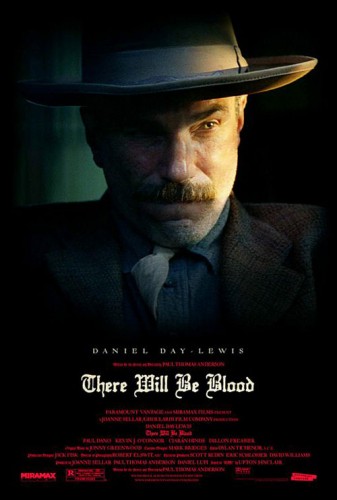 Promised Land was not a commercial success, but numerous other anti-capitalistic films achieved great popularity and were commercial successes. A lengthy list of such American movies could be provided. Here are just a few examples.
Promised Land was not a commercial success, but numerous other anti-capitalistic films achieved great popularity and were commercial successes. A lengthy list of such American movies could be provided. Here are just a few examples.
There Will Be Blood (2007), based upon a 1927 novel by acclaimed writer Upton Sinclair, tells the story of a gold miner-turned-oilman on a ruthless quest for wealth during the oil boom in Southern California during the late 19th and early 20th centuries. The villainous businessman commits two murders during the course of the film.
A very successful motion picture, The Towering Inferno (1974), portrays a deadly and disastrous fire in the world’s tallest building, in San Francisco, on the day of its grand opening. The fire is caused by the building contractor’s chief electrical engineer who chooses to save money by using cheap, shoddy wiring instead of the more costly heavy-duty wiring specified by the architect. The inadequate wiring cannot withstand the tremendous load it bears and ignites an enormous fire that starts in the building’s electrical system.
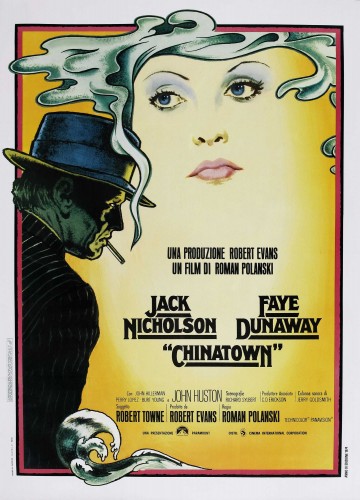 Chinatown (1974) depicts the activities of a businessman who commits fraud and murder in the course of bringing water to Los Angeles from rural agricultural areas. There is a mystery about the businessman’s daughter that is solved when near the end of the film the daughter reveals she has a daughter of her own who was the product of incestuous relations with her own father, the evil business man.
Chinatown (1974) depicts the activities of a businessman who commits fraud and murder in the course of bringing water to Los Angeles from rural agricultural areas. There is a mystery about the businessman’s daughter that is solved when near the end of the film the daughter reveals she has a daughter of her own who was the product of incestuous relations with her own father, the evil business man.
The 1964 film Goldfinger tells the story of fictional British secret agent James Bond thwarting the effort of a gold magnate and smuggler to attack the U.S. gold depository at Fort Knox, Kentucky.
The independent filmmaker Michael Moore has made the most widely viewed of the genre of anti-capitalistic documentaries. Moore’s films include Roger and Me (1989); Sicko (2007); and Capitalism: A Love Story (2009).
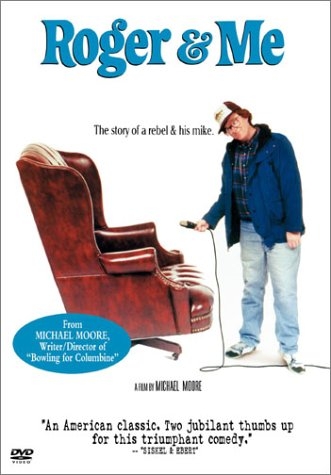 Roger and Me portrays auto maker General Motors (GM) and its CEO Roger Smith as villains in closing down manufacturing of GM products at Flint, Michigan, during the 1980s. There is no mention of GM’s shrinking market share making cuts in production necessary to survive, nor a hint about the other problems of all the Big Three American carmakers. They all had too many factories, too many workers, and too many dealers. Generous union contracts negotiated in better times had created legacy costs that their foreign rivals did not have to bear.
Roger and Me portrays auto maker General Motors (GM) and its CEO Roger Smith as villains in closing down manufacturing of GM products at Flint, Michigan, during the 1980s. There is no mention of GM’s shrinking market share making cuts in production necessary to survive, nor a hint about the other problems of all the Big Three American carmakers. They all had too many factories, too many workers, and too many dealers. Generous union contracts negotiated in better times had created legacy costs that their foreign rivals did not have to bear.
Capitalism: A Love Story shows the hardships of ordinary people suffering economically in the aftermath of the financial crisis of 2008. It is effective in its image creation of widespread hardship. Some of it is Moore interviewing himself about capitalism and socialism. Towards the end he says that capitalism is evil, it cannot be improved and should be replaced by “democracy”. From the context it is clear that by democracy he means socialism. There is even an image of a bust of Marx, accompanied by a favorable comment of Moore about socialism.
Journalism
America has some fine newspapers, including The New York Times, the Wall Street Journal, the Los Angeles Times, and the Washington Post. One can learn a lot from these journals despite much of the opinion and the news coverage being permeated with an anti-capitalistic perspective.
One example of anti-capitalistic journalistic attitudes is the reporting of the offshore [outside the U.S.] profits and cash holdings of large companies such as Apple, Inc. Newspapers repeat politicians’ allegations that imply this is some sort of nefarious tax evasion. What Apple and other companies do in this regard is authorized by the U.S. tax code. Congress has tax committees that are knowledgeable about such issues. If it is in the law, that is because it is the intent of Congress to allow it. But one seldom if ever reads about or hears that part of the story in newspapers or on TV.
Political Advertising

This banner from the Women’s International League for Peace and Freedom dissociates peace and business. Yet capitalism is the quintessence of peaceful human cooperation.
Politicians routinely accuse each other of selling out to business, i.e., trading pro-business votes in the legislature for political donations or favors from business. Here is a quote from a mailing piece in a Congressional election in Los Angeles in 2012: [Congressman X] “voted to Benefit Big Pharmaceutical Companies.”
The advertisement was meant to create an image that the incumbent was too cozy with big pharmaceutical companies. The Congressman in question was head of a committee of the House of Representatives that wrote an initial version of legislation that became eventually “The Affordable Care and Patient Protection Act of 2010,” commonly referred to as ACA or Obamacare.
That legislation was supported by big pharmaceutical companies and their trade organization. Thus, the campaign advertisement could be defended as truthful. The Congressman had voted for legislation that pharmaceutical companies supported, for reasons of their self-determined self interest. However, the implication was false, as the Congressman has a long record of being anything but a friend of big pharmaceutical companies or any business for that matter.



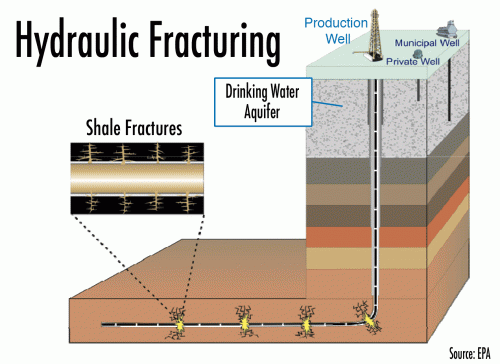

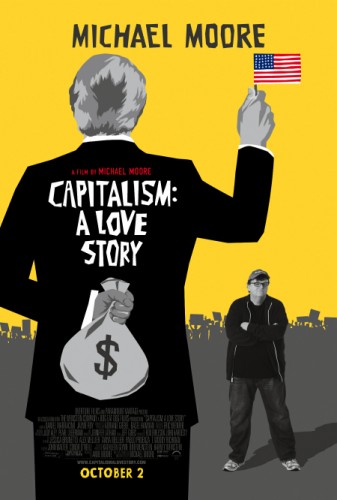

One Response to Capitalism in the Media